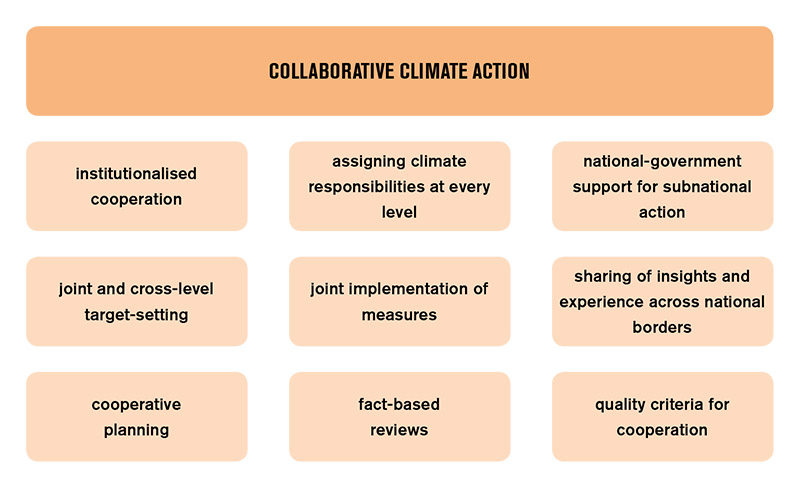Governance
Connecting all dots

Several of Germany’s sub-national Länder (states) enacted climate-protection laws long before the federal law was passed in 2019. They are now revising the sub-national laws to adapt to higher targets. Municipal decision-making is bound to these regional regulations in Germany.
Since 2008, the Federal Ministry for the Environment has spent over € 1.2 billion in support of 35,000 municipal projects relating to climate-friendly planning and infrastructure. The expenditure is part of Germany’s National Climate Initiative. According to the German constitution, the Federal Government has little bearing on municipalities, but it has gained traction by providing financial incentives.
Colombia, Fiji, Indonesia, Mongolia, Rwanda, South Sudan and Tonga have set examples by combining two things:
- drafting explicit national urban development policies and
- referencing them in their nationally determined contributions.
They want to boost the potential of cities and improve living standards by reducing emissions.
As early as 2008, British Columbia, Canada’s western-most province, introduced a carbon tax. It foresees reductions in other government taxes, providing balancing mechanisms to facilitate a revenue-neutral transition to a low-carbon economy. This CO2 tax has been very successful, and Canada’s Federal Government has built on that success by introducing a nationwide carbon tax. The example shows how a sub-national initiative can eventually define the national standard.
Indonesia’s web-based platform “Aksara” compiles data on greenhouse-gas emissions. It shows how much they could be reduced if all of the country’s climate programmes – including those of sub-national authorities – were fully implemented.
Links
Example of Colombia, Fiji, Indonesia, Mongolia, Rwanda, South Sudan and Tonga:
https://urbantransitions.global/en/publication/climate-emergency-urban-opportunity/
Aksara:
https://pprk.bappenas.go.id/aksara/aksara_home_english










